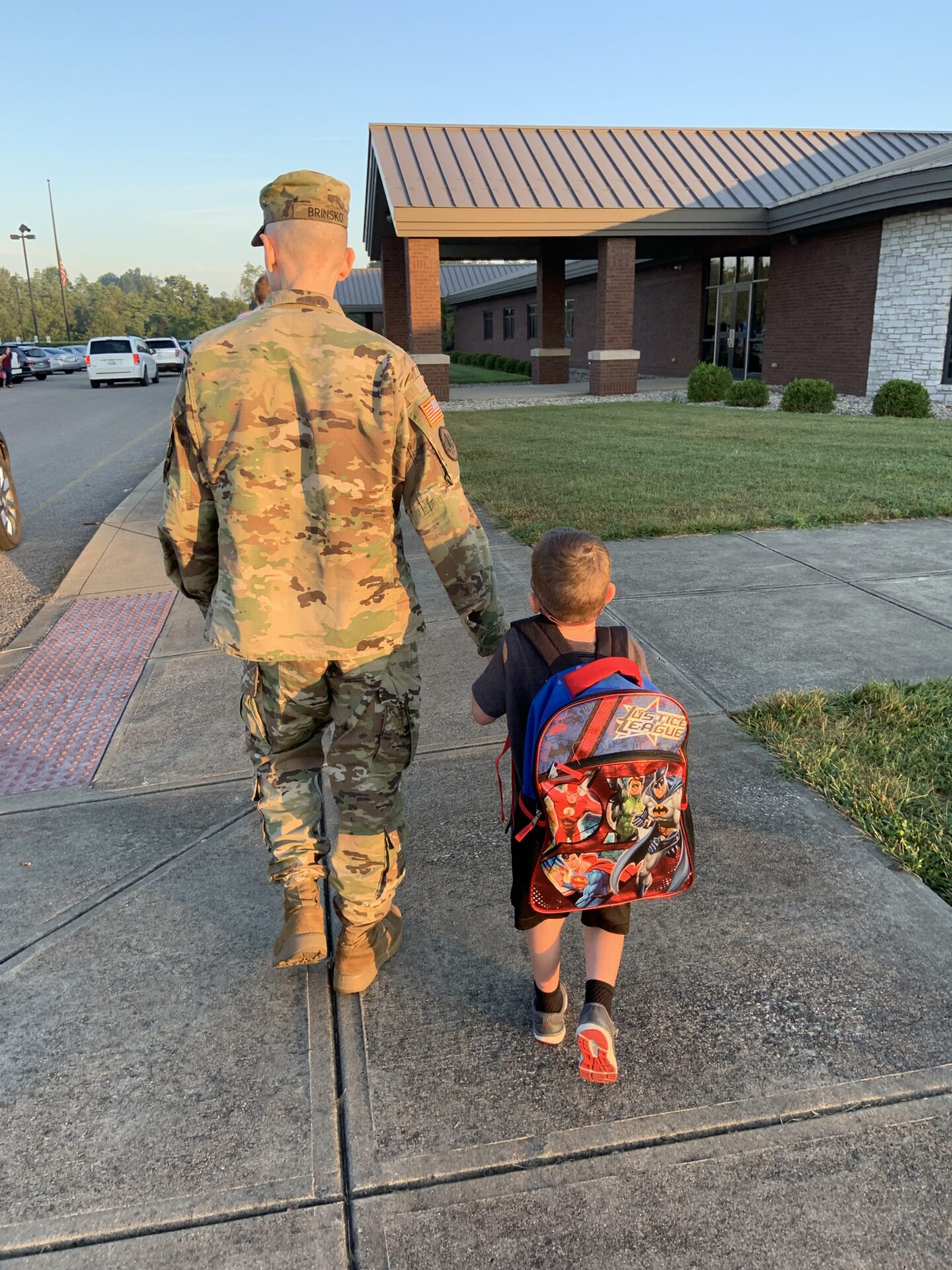
Military Families: PiP’s Special Education Bill of Rights
| Featured Article, IEP, IEP Meetings, IEPs, PCSing, Transitions
Partners in PROMISE created its own “Bill of Rights” for military families. It includes reminders of your rights for IEP meetings, consent requirements, dispute and resolution procedures, and Free Appropriate Public Education (FAPE).
In the military community, it’s easy to miss important information due to our highly mobile lifestyle. Partners in PROMISE recognize those challenges. Our survey data show a relationship between informed parents and positive outcomes in their child’s special education. We learned that key elements of special education law and its protections were not known to most of our military families in special education. The data also show that these families were not aware of resources specifically designed to support them.
IDEA Guidelines and Protections for Military Families During School Transfers
The Individuals with Disabilities Education Act (IDEA) provides guidelines for military families and protections for students with a disability in transferring to a different school district, within the same state, or out of state.
Ensuring Continuity of Education: Military Families and Transfer IEPs
When military families move, the new school district does not have to replicate the student’s current Individualized Education Program (IEP) or 504 Plan from the previous school district (referred to as the “Transfer IEP”). However, the school district must continue to offer the student a Free Appropriate Public Education (FAPE). These services are “comparable” to those in the transfer IEP until they propose a new IEP.
Empowering Military Parents: Partners in PROMISE’s Bill of Rights

As a military parent of a student with a disability, you have the right to:
- Participate in your children’s IEP meetings and represent your child’s interests. To this end, IEP meetings must be held at mutually agreeable times and locations. Furthermore, you may invite a friend, advocate, attorney, or subject matter expert to be present at IEP meetings with you. Finally, make sure you meet with the new IEP team prior to or soon after the new school year begins.
- Ask your local Exceptional Family Member Program (EFMP) branch if there are case managers/liaisons, etc., that are available to attend IEP Meetings with you (varies by service branch).
- Audio record any meeting under the IDEA. This is especially important when both parents cannot meaningfully participate in an IEP Meeting due to deployments, work schedules, etc. School districts must have policies that enable parental participation. Please verify what the notification requirements for audio recording are in your State.
- Request an IEP Meeting at any time during the school year. Don’t forget to put your request in writing (email is sufficient).
- Review IEP goals and progress with the IEP Team during the school year at the frequency stated in your child’s IEP.
- Receive Prior Written Notice (PWN) for any change to your child’s IEP including proposed or refused requests or actions.
- Provide written consent before certain actions occur. This includes the initial eligibility process, proposed evaluations, and in some states, any changes to existing IEPs.
- Receive a copy of your child’s school evaluation in advance of any meetings during which they will be reviewed. Additionally, if you disagree with the results of the school district’s evaluations, you should request in writing an independent educational evaluation (IEE) at public expense.
- Provide private reports for IEP, Reevaluation, and Eligibility Team consideration from outside and/or private sources.
- Request a copy of, or the opportunity to examine all education records pertaining to your child. Also, be provided with a copy of the IEP. (The Family Educational Rights and Privacy Act (FERPA).
- Disagree with IEP team decisions, including a new proposed IEP after transferring, and pursue dispute resolution procedures. This includes requesting a facilitated IEP meeting, filing a State complaint with the State’s Department of Education, requesting state mediation, filing for a due process hearing, and appealing the due process decision to the federal court.
- Ensure your child is placed in the least restrictive environment in which they can access a Free and Appropriate Public Education; and, to the greatest extent possible, participate in general education.
- Request modifications and accommodations to support effective communication under the Americans with Disabilities Act. Moreover, if you have limited English language proficiency, the right to request interpreters and translators.
- A Free Appropriate Public Education for your child through an IEP or Section 504 Plan designed to address your child’s unique needs arising from their disabilities. This may include, but is not limited to, special education and related services, such as assistive technology devices and services; transportation; speech pathology services; audiology services; interpreting services; psychological services, including behavioral interventions; physical therapy; occupational therapy; recreation, including therapeutic recreation; counseling services, including rehabilitation counseling; orientation and mobility services; school health services; school nurse services; social work services; parent counseling and training; and medical services for diagnostic or evaluation purposes.
About the Authors
Michelle Norman, Founder & Executive Director

Michelle graduated with a degree in Petroleum Engineering from the University of Texas at Austin. She worked as an Environmental Engineer civilian with the US Navy until her daughter was born prematurely. Her problem-solving background as well as her desire to do the right thing has resulted in top-level changes over the last few years within the Department of Defense Exceptional Family Member Program and State Disability communities. Read Michelle’s more of Michelle’s bio here.
Grace Kim, esq., Founder & President of the Board

Grace E. Kim is the principal attorney with The Law Office of Grace E. Kim, P.C. Her practice is focused on Special Education and Education Law, including issues involving the Individuals with Disabilities Education Act (IDEA), Section 504 of the Rehabilitation Act of 1973, the Americans with Disabilities Act (ADA), restraint and seclusion, school discipline, and higher education issues. Read more of Grace’s bio here.





Leave a Reply